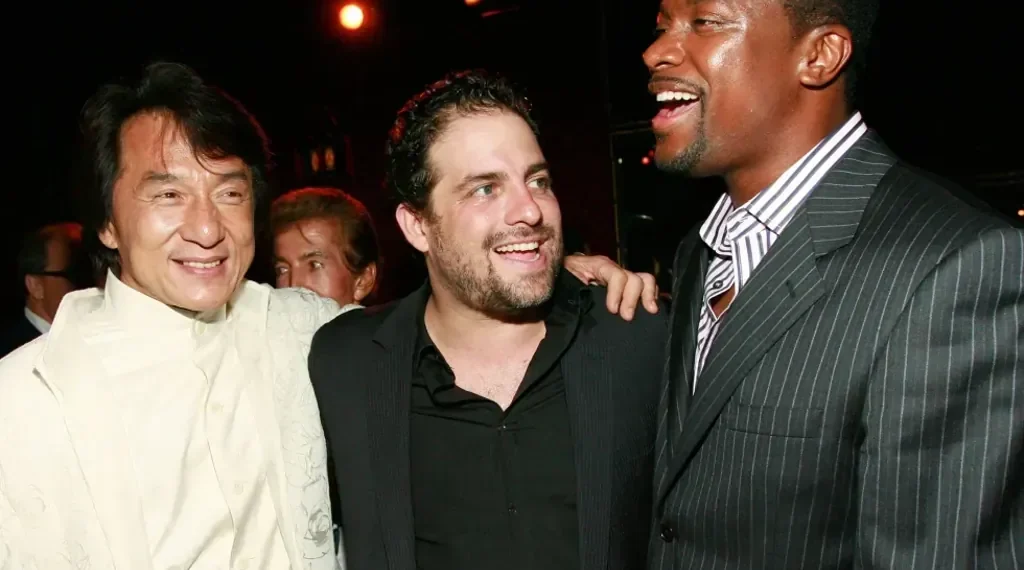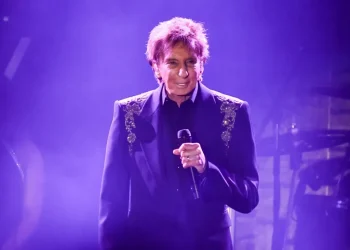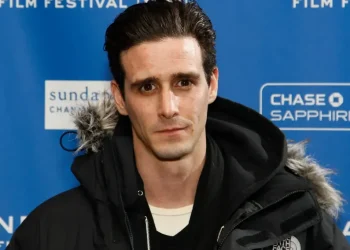Paramount Pictures is preparing to distribute the upcoming instalment of the Rush Hour franchise after reported intervention from former U.S. President Donald Trump, marking a significant shift for a project that Hollywood studios had previously distanced themselves from. The move brings director Brett Ratner back into commercial film distribution for the first time in more than a decade, following sexual misconduct allegations that prompted major partners to sever ties during the #MeToo era.
A person familiar with the negotiations said the studio entered final discussions on Tuesday to secure distribution rights for Rush Hour 4. The individual, who requested anonymity as the deal has not been formally announced, noted that Paramount would not finance the film but would take a distribution fee. The project has been circulating in the industry for several years, with no major studio willing to attach itself until now.
The development comes months after Paramount merged with Skydance Media in an $8-billion transaction that required regulatory approval under the Trump administration. Trump has publicly praised Skydance chief executive David Ellison, who now oversees the combined studio and is the son of Oracle founder Larry Ellison, a well-known Trump supporter.
Reported Presidential Request Adds Unusual Political Dimension
According to Semafor, Trump personally requested that Paramount agree to distribute Rush Hour 4, a claim that neither the studio nor the White House addressed directly this week. The White House did not provide comment on Wednesday when asked about the report.
If confirmed, the request would represent a rare instance of direct political involvement in the commercial decision-making of a major Hollywood studio. While governments regularly interact with media companies on regulatory and antitrust matters, it is highly uncommon for an elected official to weigh in on specific entertainment projects.
Industry analysts say the situation adds a new layer to longstanding debates about political influence in cultural production. In recent years, studios have faced increased scrutiny over external pressures ranging from foreign-market considerations to shareholder activism and public-relations constraints.
Ratner Returns to Film Market After Years of Industry Isolation
Brett Ratner, who directed the first three films in the franchise, has not produced a feature since 2017. That year, six women accused him of sexual misconduct in a Los Angeles Times investigation, allegations that he denied. Warner Bros. — which had a $450-million co-financing agreement with his company, RatPac-Dune — cut ties shortly afterward, and Ratner’s projects disappeared from studio-backed slates.
Warner Bros., which released the original Rush Hour trilogy in 1998, 2001 and 2007, declined to participate in the new film, prompting Ratner to seek alternative partners. The series paired Jackie Chan and Chris Tucker in action-comedy roles that helped propel both actors to wider international recognition. The franchise has generated a global following over two decades and remains a commercial asset with enduring appeal in streaming and syndication markets.
Ratner recently completed one other project: a documentary about former first lady Melania Trump. Earlier this year, Amazon MGM Studios acquired global rights to the film for a reported $40 million, marking the director’s first major distribution agreement since the allegations surfaced. The documentary is scheduled for theatrical release on January 30.
Paramount Balances Commercial Strategy and Public Perception
Paramount’s involvement in Rush Hour 4 comes at a time when the studio is navigating substantial industry change. The merger with Skydance has positioned the company to expand its streaming and blockbuster strategy while consolidating production pipelines. Analysts say taking on a high-profile franchise without financing it may offer a lower-risk way to test audience appetite for established properties.
However, the move could also draw public scrutiny given Ratner’s history and the political element linked to the negotiations. Major entertainment companies have adopted more formal conduct policies since the emergence of the #MeToo movement, and many remain cautious about reputational exposure.
The recalibration of Hollywood’s power landscape has also coincided with shifting box office performance. Legacy franchises have been both a stabilizing force and a source of unpredictability, with studios weighing nostalgia against changing consumer expectations. In recent years, films tied to long-running series have experienced mixed results, reflecting broader competition from streaming platforms and event-driven viewing habits.
Franchise Legacy and Industry Implications
The Rush Hour series helped shape the global action-comedy genre, combining martial-arts choreography with cross-cultural humour. When the original film opened in 1998, it became a surprise commercial success and broadened Jackie Chan’s Hollywood reach. Its sequels continued to perform strongly in early 2000s box offices.
If production proceeds as expected, Rush Hour 4 would reunite Chan and Tucker more than 17 years after the last instalment. Neither actor has commented publicly this week, and no release timeline has been announced.
For Paramount, the distribution arrangement may signal a willingness to take calculated risks on pre-sold properties without shouldering full financial exposure — a model studios have increasingly adopted amid cost-cutting pressures. Whether the deal opens the door to additional collaborations involving Ratner remains unclear.
As talks advance, the project illustrates how legacy franchises continue to exert influence in a changing entertainment landscape, where corporate consolidation, market uncertainty and political crosscurrents shape decision-making in ways that were once unthinkable.
This article was rewritten by JournosNews.com based on verified reporting from trusted sources. The content has been independently reviewed, fact-checked, and edited for accuracy, neutrality, tone, and global readability in accordance with Google News and AdSense standards.
All opinions, quotes, or statements from contributors, experts, or sourced organizations do not necessarily reflect the views of JournosNews.com. JournosNews.com maintains full editorial independence from any external funders, sponsors, or organizations.
Stay informed with JournosNews.com — your trusted source for verified global reporting and in-depth analysis. Follow us on Google News, BlueSky, and X for real-time updates.














